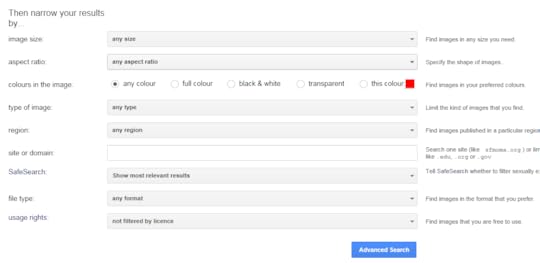Just because you can Google it …
I really love David Gaughran. I highly recommend his books – Let’s Get Digital and Let’s Get Visible – if you want to publish yourself.
I love / hate when David Gaughran has a new blog post. Love, because it will be informative, and accurate, and interesting. Hate, because it usually means somebody’s done something immoral or unethical, and he’s calling them on it (Two words: Author Solutions).
David’s post today talks about something infuriating, illegal, unethical, and blood-boiling that happened to him personally.
Feel free to read it yourself, but a lot of it revolves around somebody taking David’s work, without his permission and without compensation and then being stupid enough to say (on Twitter – stupid!) “The article was copied from an online article that I read and passed along to our authors… Perhaps you should sue google,” followed by “Everything on google is liable to public sharing.”
Uh … no.
And, by the way, the group that wrote this – IndieWriterSupport.com (not linking to these yahoos) claims to offer support to writers. I’d be careful taking “support” from somebody who thinks that “everything on Google is liable to public sharing.”
So, to get to the point – no, you cannot just take things you find using Google and use them for free.
Not writing, not songs, not photos.
Nothing.
And, you can get yourself into quite a bit of trouble doing so.
That’s not to say you can’t find great things on Google to share. You can. It’s perfectly fine to – for example – share my blog post. To do that properly, you’d acknowledge that I wrote the post. You might then put the first line or two on your blog and you’d then have a link to my blog for readers to finish reading it on my site. This brings readers back to my site to read the post, which is where I intended them to read it in the first place.
If you really, really, want to put the whole thing on your site – you can ask me. I’m easy to find and contact. You just email, explain why you want to put it there, ask me if it’s OK, and I say yes or no.
The same is true of any of my writing. If you want to tell someone you loved my latest book (if so – thank you) you can use a few lines to explain why.
If you want to publish more – if you want to post a whole page, or pages, you can ask me. I’ll probably say you can’t just post chunks of my book for free, but you never know. You need to ask.
Same with photos – oh my goodness, these are so abused. It’s now so easy to right click and – voila – you have an image to use as you like. Right? No …
If you didn’t take them, or the photographer didn’t say you could use them, they’re not yours.
Not yours.
So, what can you do? The easiest thing is to find photos that are free to use.
I have two ways of doing this.
1) Through a Creative Commons search. Just put in your keywords and see what pops up.
2) Using Google’s Advanced Image Search. It will bring up a form that looks like this and, under “usage rights” you can select “free to use or share.”
In both these cases, you still have to read the fine print. What does the photographer / image creator want you to do in return for using their image? Probably give credit. Sometimes they say you can alter the image – sometimes not. Sometimes you can, but you have to say you’ve done so. Please follow the rules. You’re getting somebody’s work for free – don’t abuse it!
Bottom line, this isn’t crazy hard to understand, this isn’t unreasonable, this isn’t rocket science. If you didn’t make it, it’s not yours. If you’re not sure if you can use it, ask. If somebody says no, stop.
It’s true, we’ll never stop all the pirating / theft / stealing of material on the web, but – trust me – being lumped in with those who do it is not where you want to be.
Be smart, be respectful, and set the example for others to be respectful of your work, too.





